Aftermath of the Newburgh Conspiracy
General George Washington’s leadership on March 15, 1783, ended the Newburgh Conspiracy, upholding the revolutionary principle of civilian control of the military. In November, the Continental Army was officially disbanded, and the following month, General Washington traveled to Annapolis and resigned his commission to the Confederation Congress on December 23, 1783. That Washington resisted this chance to be king speaks volumes about his character and commitment to this country.
Tom Hand, creator and publisher of Americana Corner, discusses Washington’s actions during the aftermath of the Newburgh Conspiracy, and why it still matters today.
Images courtesy of Smithsonian American Art Museum, Library of Congress, Brown University Library, National Portrait Gallery - Smithsonian Institution, Wikipedia.

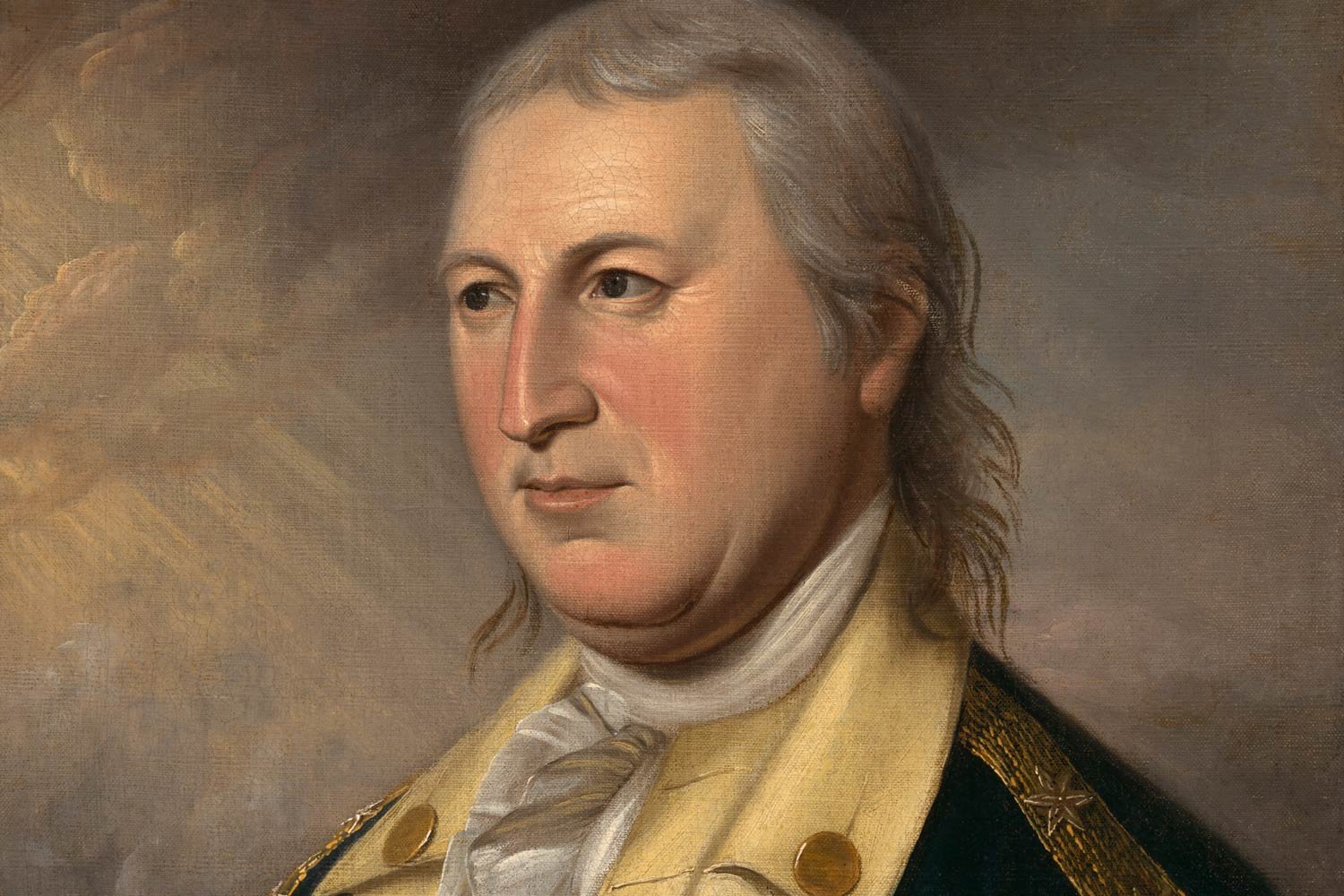
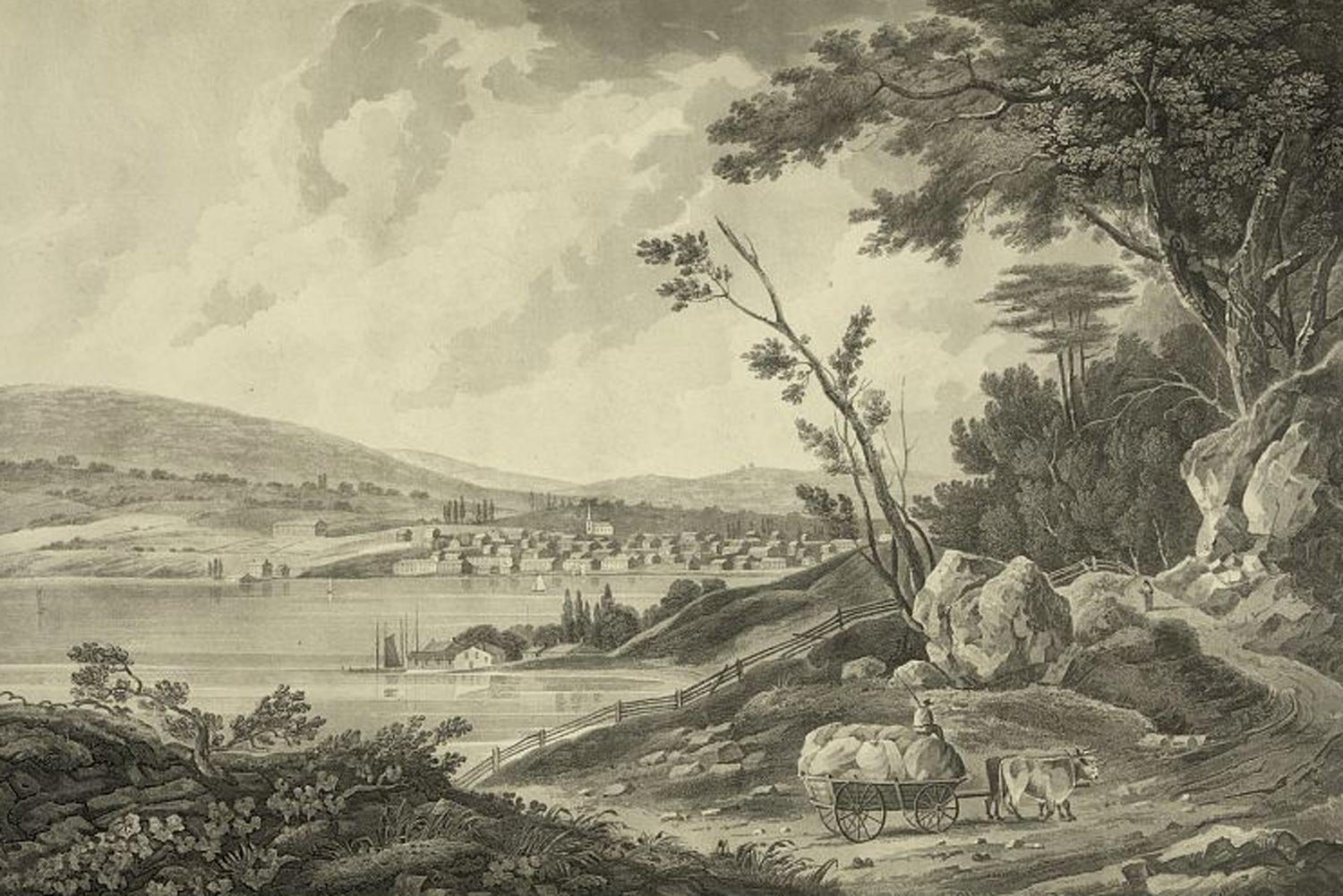
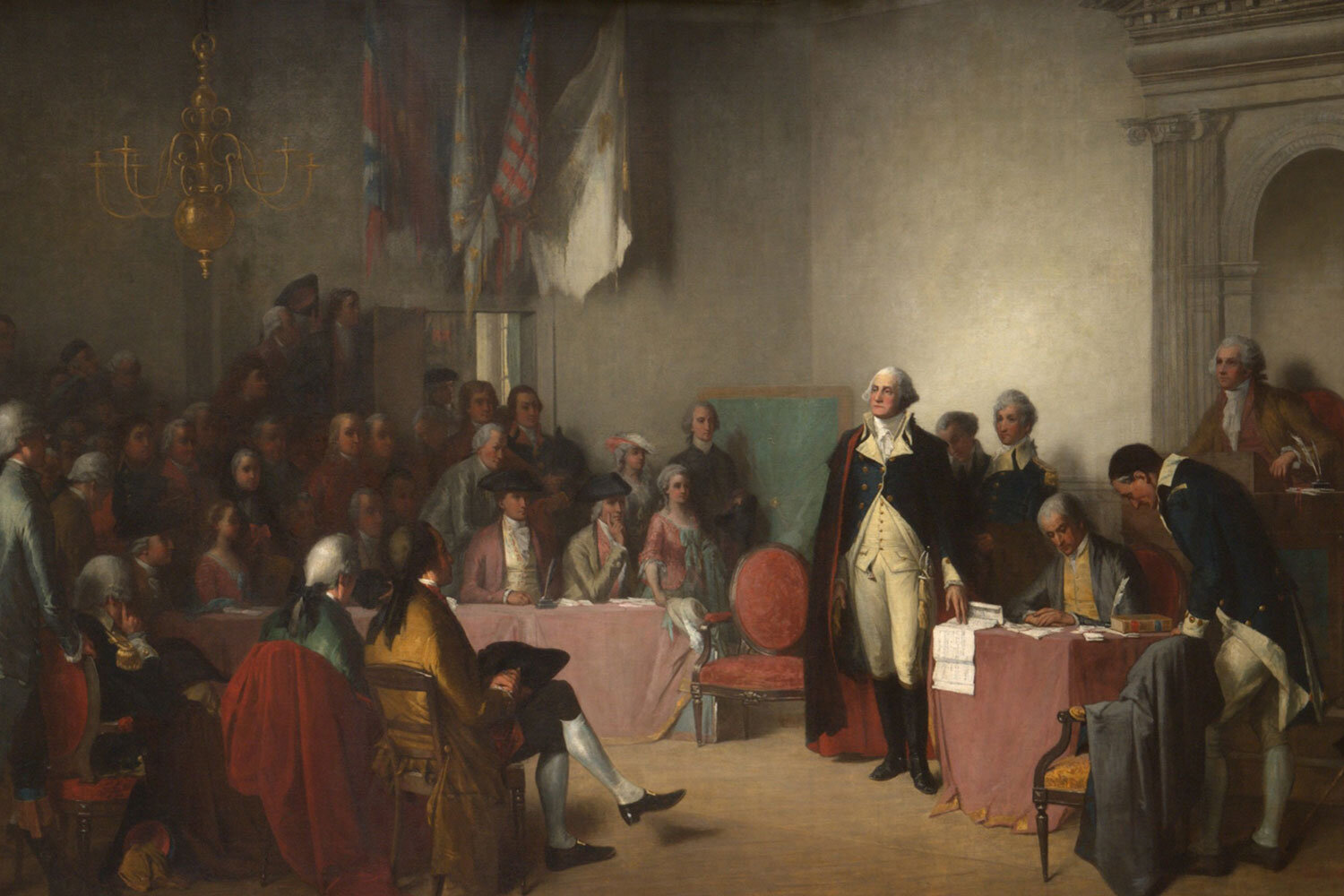
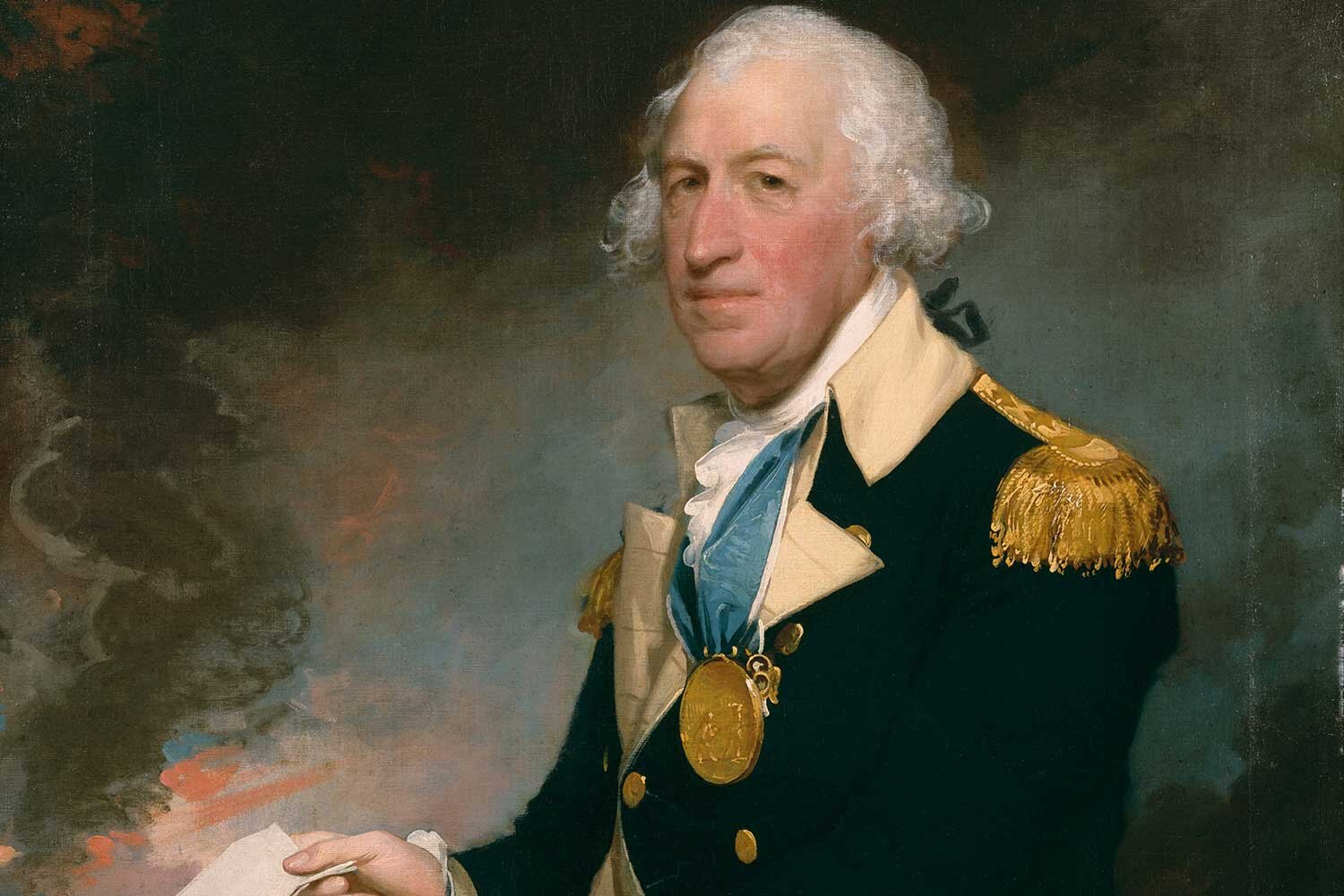
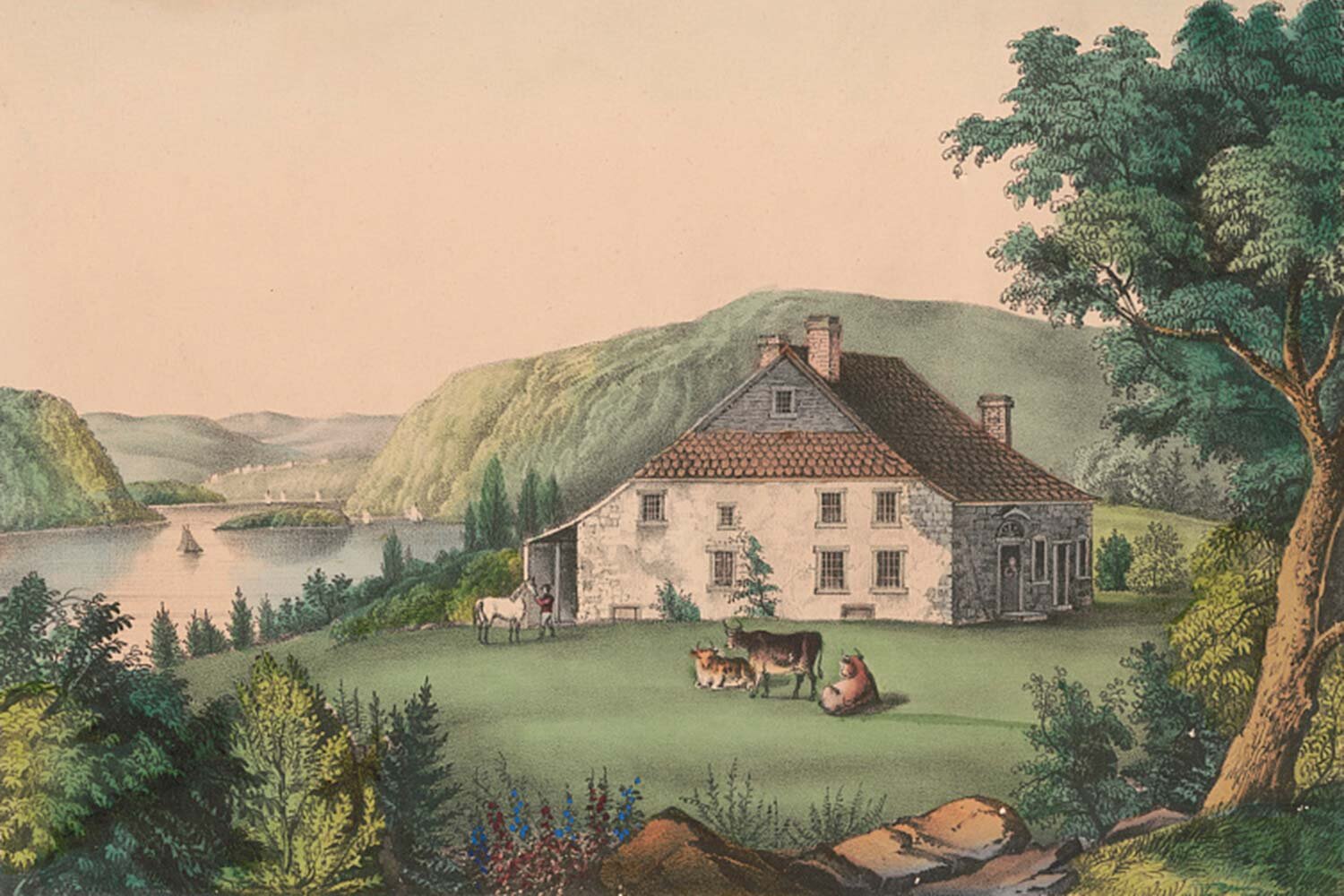
The Newburgh Conspiracy represents a time when our nation came closest to deviating from our core revolutionary principles of representative government with civilian control of the military. Because of a weak Confederation Congress and unhappiness within the officer ranks of the Continental Army, the stage was set for our new nation to drift into a military dictatorship or monarchy.